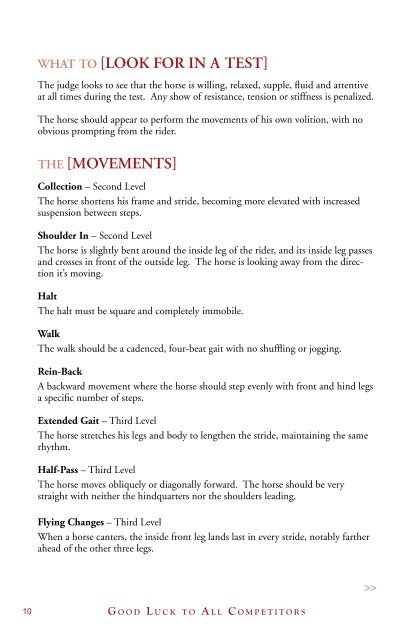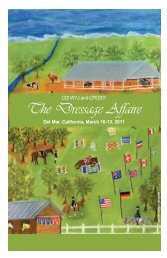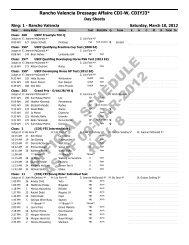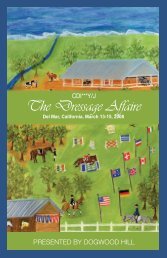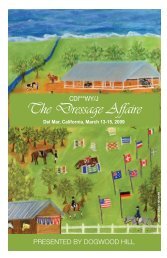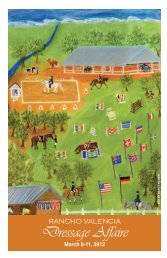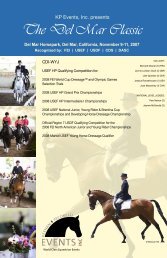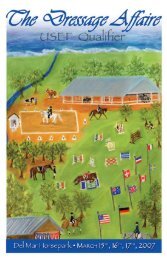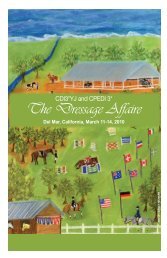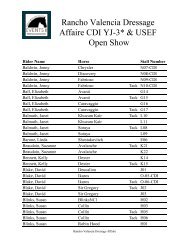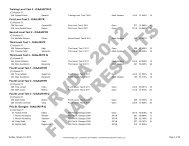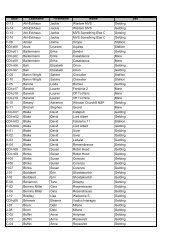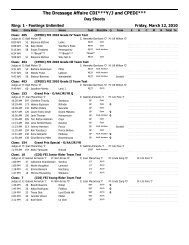Dressage Affaire 2008 Show Program
Dressage Affaire 2008 Show Program
Dressage Affaire 2008 Show Program
Create successful ePaper yourself
Turn your PDF publications into a flip-book with our unique Google optimized e-Paper software.
WHAT TO [LOOK FOR IN A TEST]<br />
The judge looks to see that the horse is willing, relaxed, supple, fluid and attentive<br />
at all times during the test. Any show of resistance, tension or stiffness is penalized.<br />
The horse should appear to perform the movements of his own volition, with no<br />
obvious prompting from the rider.<br />
THE [MOVEMENTS]<br />
Collection – Second Level<br />
The horse shortens his frame and stride, becoming more elevated with increased<br />
suspension between steps.<br />
Shoulder In – Second Level<br />
The horse is slightly bent around the inside leg of the rider, and its inside leg passes<br />
and crosses in front of the outside leg. The horse is looking away from the direction<br />
it’s moving.<br />
Halt<br />
The halt must be square and completely immobile.<br />
Walk<br />
The walk should be a cadenced, four-beat gait with no shuffling or jogging.<br />
Rein-Back<br />
A backward movement where the horse should step evenly with front and hind legs<br />
a specific number of steps.<br />
Extended Gait – Third Level<br />
The horse stretches his legs and body to lengthen the stride, maintaining the same<br />
rhythm.<br />
Half-Pass – Third Level<br />
The horse moves obliquely or diagonally forward. The horse should be very<br />
straight with neither the hindquarters nor the shoulders leading.<br />
Flying Changes – Third Level<br />
When a horse canters, the inside front leg lands last in every stride, notably farther<br />
ahead of the other three legs.<br />
>><br />
10<br />
G o o d L u c k t o a l l C o m p e t i t o r s


